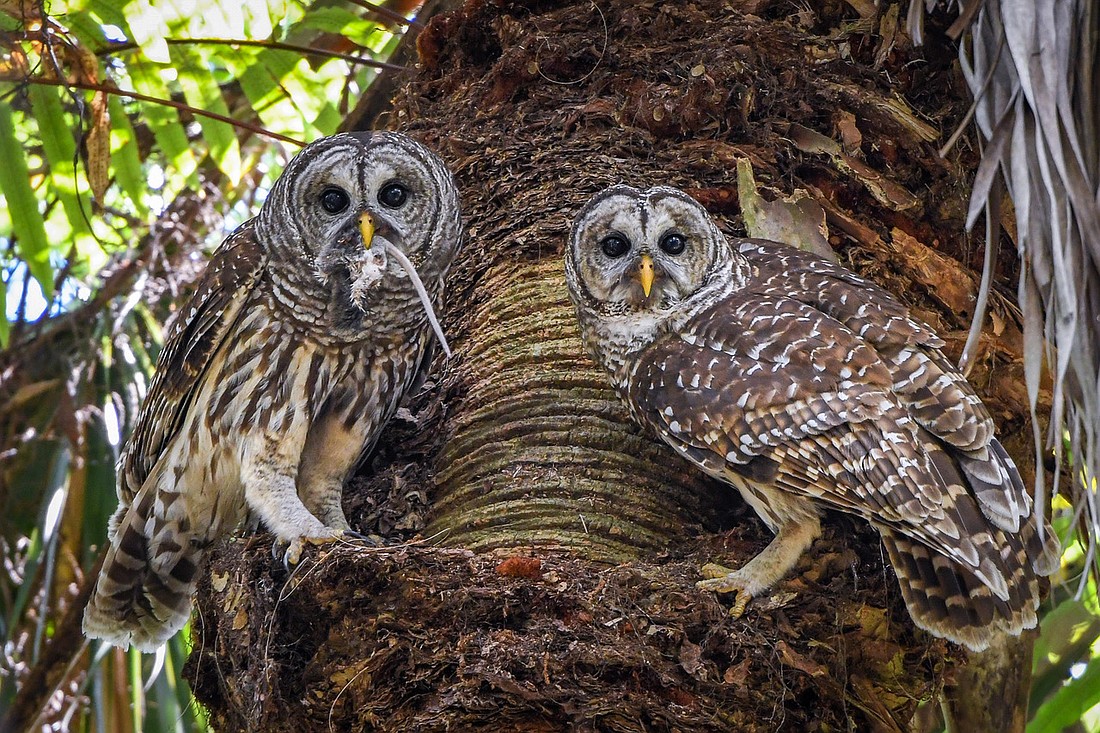- May 1, 2025
-
-
Loading

Loading

With their keen eyesight, sharp talons and hooked beaks, birds of prey — or raptors — are adept at hunting.
The word "raptor" comes from the Latin word rapere, which means "to seize or take by force.
As they prey on a wide variety of species, including insects, reptiles, amphibians, mammals and fish, carnivorous birds such as owls, hawks and eagles are important links in the animal food chain. They play a crucial role in maintaining the health and balance of Florida's ecosystems.
A primary concern for our region's raptors is habitat loss. And though the state-protected lands of Myakka River State Park provide crucial habitat for numerous raptor species, human activities in the park can still pose threats.
For example, recreational activities such as photography, hiking and boating can disrupt nesting and foraging behaviors. As raptors are highly sensitive to disturbances, constant human presence in their habitats can lead to the abandonment of nesting sites and reduced reproductive success.
Encroaching development also poses a threat to Myakka's raptors. Increased traffic, in and outside of the park, results in higher collision risk for birds that forage at the same height as vehicles, such as owls. And rising use of anticoagulant rodenticides for pest control in our communities is having a deadly impact on our region's birds of prey.
Anticoagulants prevent blood from clotting and cause animals to bleed to death internally. As these poisons don't kill rodents immediately, but rather slowly weaken them, they become easier prey for raptors. Consuming poisoned rodents has disastrous consequences for raptors and their chicks.
Poison use in our environment exacerbates pest infestations, as it threatens native rodent-controllers who keep pests in check. We can help protect animals in the wild, including raptors, by always giving them plenty of space. At home, we can research pest-control solutions to avoid using hazardous poisons.
Opting for preventative practices, such as rodent-proofing human structures, trimming foliage and tree limbs away from houses and reducing rodent attractants (such as trash, pet food, spilled birdseed and fallen fruit) can effectively protect both our homes and our environment.